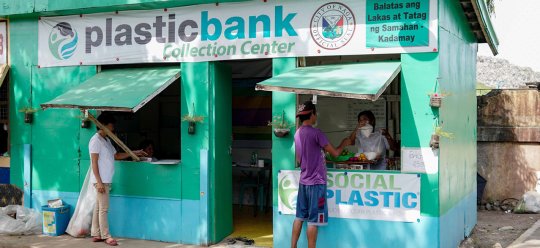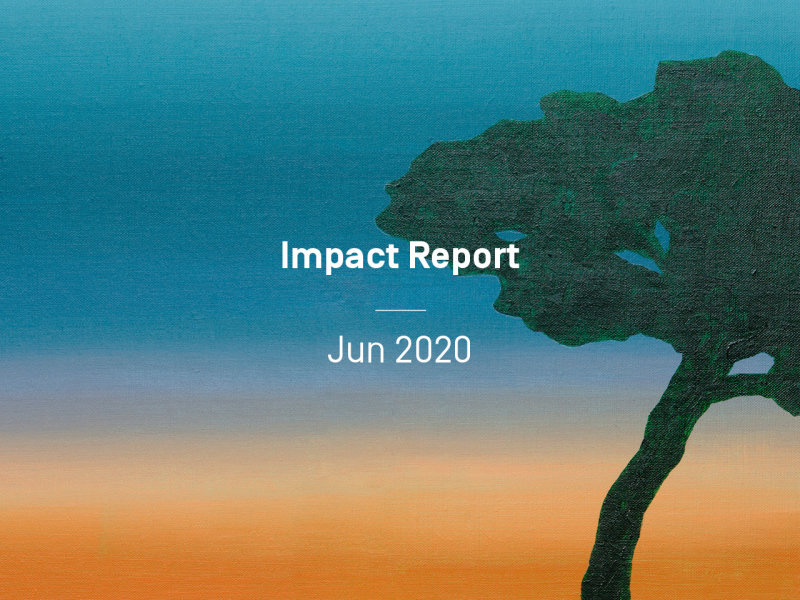We established Tomorrow because we want to play our part in creating a better, more sustainable tomorrow with you. Our Impact Report is a compact monthly update that keeps you up to date on our progress – with the latest figures, insights into how we are committed to the SDGs of the United Nations and the lowdown on additional projects that we want to continue to grow with our positive impact. Let’s get started!
Your money is our capital for change
Your money is our capital. Unlike many other conventional banks, we don’t invest it in the arms industry, factory farming or coal-fired power plants. So the more money we take away from these banks, the better. Money, after all, needs to be part of the solution, not the problem.
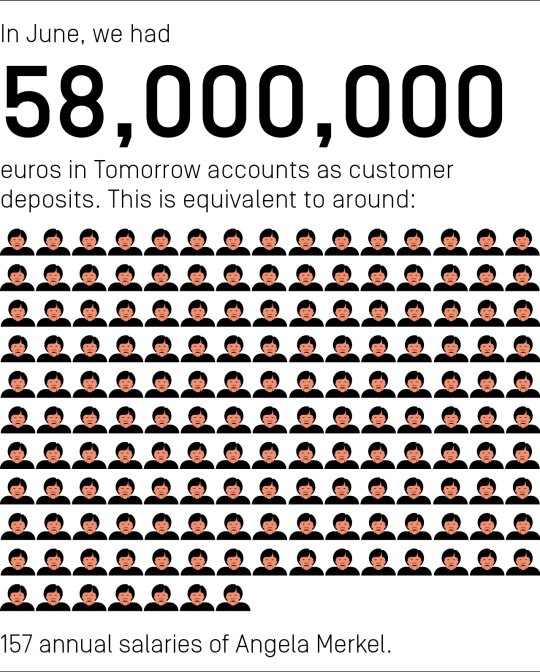
The more money that is paid into our accounts, the more good we can do.
In the month of June
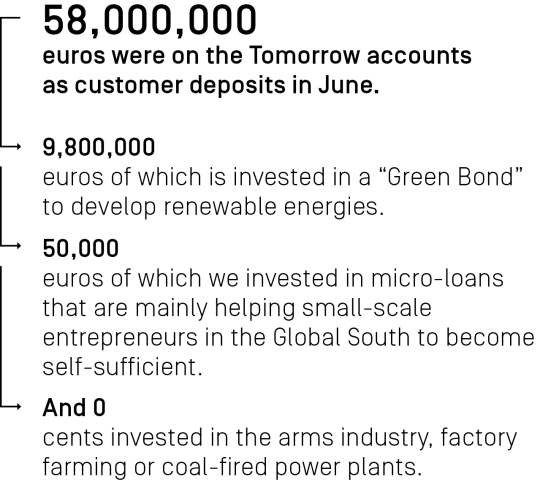
Our joint contribution to protecting the climate
Every time you use your Tomorrow card in a store, a small fee is paid to us by the retailer. But instead of pocketing the money for ourselves like other banks do, we are investing it in a forest protection project in Brazil. The more often you pay using your Tomorrow card, the more square metres of rainforest are protected.
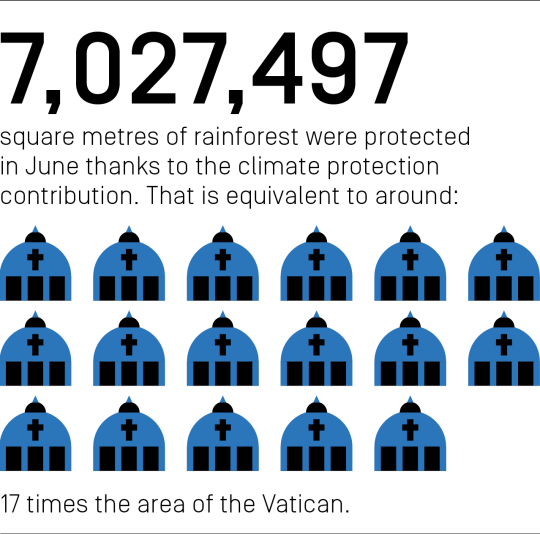
The Amazon is the world’s largest, intact rainforest and the climate protection contribution is helping to preserve it. The money is being donated to a forest protection project in Portel, Brazil and the area we are protecting is growing every month.
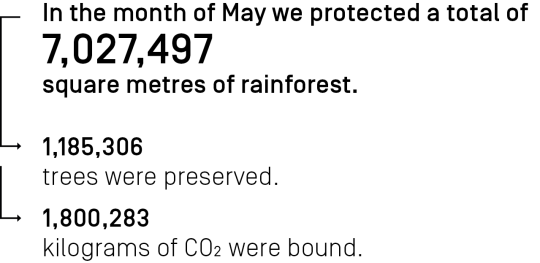
Offset your carbon footprint with Tomorrow Zero
With Tomorrow Zero, our premium account, you can offset as much CO₂ as the average German emits in a year: around 11 tonnes. The more of our users who switch to Zero, the more CO₂ will be offset. Together we can make a significant change.
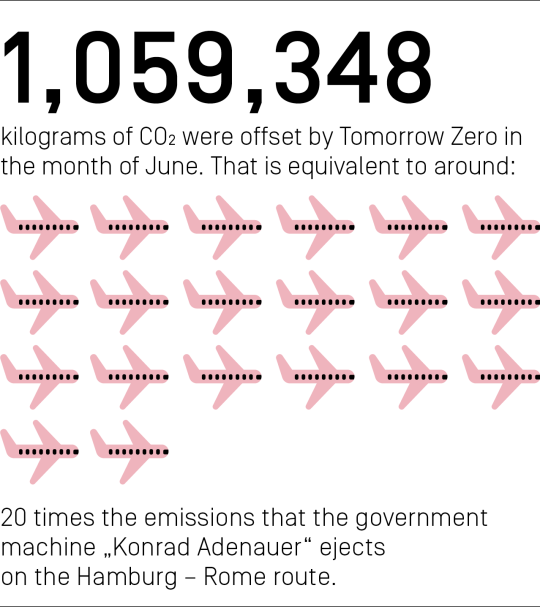
We are currently funding three climate protection projects for the CO₂ compensation. Read more about how that works here.
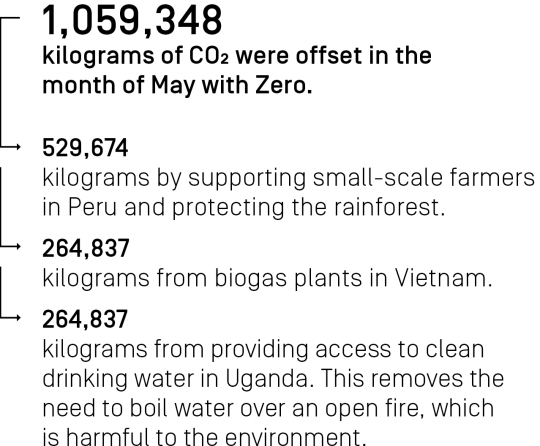
Tomorrow and the Sustainable Development Goals
In 2015 the United Nations defined a set of global goals for sustainable development: the Sustainable Development Goals (SDGs). Tomorrow is committed to these SDGs. In each of our Impact Reports we will pick out one of the goals and explain in more detail how we are contributing to fulfilling it.
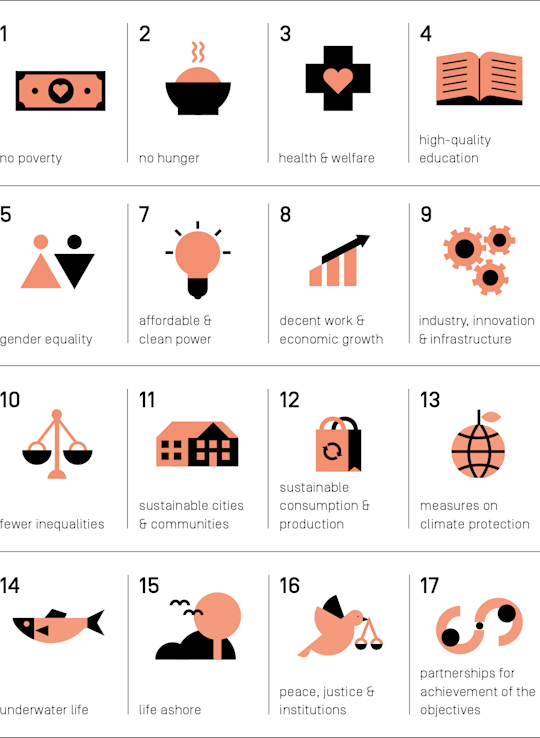
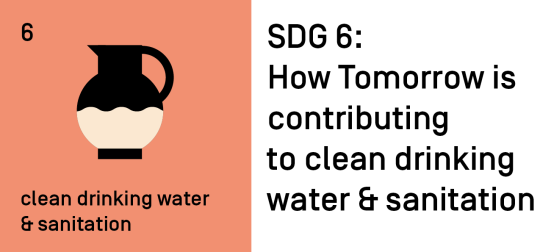
We ensure that our climate protection projects are not only for the good of the climate, but also the people in the Global South. By drilling and maintaining boreholes in Uganda, as part of Tomorrow Zero, for example. The project is giving people access to clean drinking water – without it having to be boiled first. This is very important as the consumption of contaminated drinking water is one of the leading causes of death in Sub-Saharan Africa. And the smoke that develops when water is boiled can also lead to respiratory diseases. Another project is dedicated to the installation of small biogas plants in Vietnam. The biogas that is generated can be used in gas cookers to clean water and cook, or to operate gas lamps. Hygiene is also being improved by installing toilets and latrines that are connected to the biogas plants.
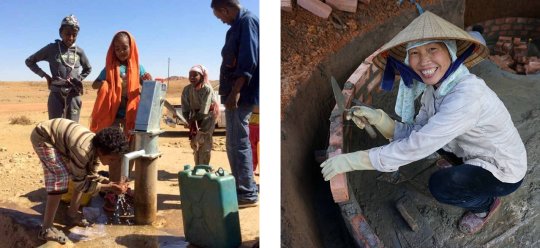
What else?
Every month we try to increase our positive impact further with new projects and initiatives – but also by giving talks, participating in demos or simply by taking a stand. Here’s a current overview:
The ocean is no place for plastic!
Our oceans help to equalise temperatures, moderating the effects of climate change by absorbing some 30 percent of the CO₂ emitted into the atmosphere. However, one of the main factors jeopardising our ecosystem is that an estimated eight million tonnes of plastic waste end up in the ocean every year. This is why in June, together with you, we supported a project via ClimatePartner that allowed plastic waste to be collected in Haiti, Indonesia and the Philippines and handed in at collection points operated by social enterprise Plastic Bank in exchange for cash, food, drinking water, mobile phone credit, cooking oil or even school fees. As the exchange amount is higher than the actual market value of the plastic, local people can make a living from it. Thanks to your recommendations, all of you who switched over to Zero and a number of other actions, approximately four tonnes of waste can now be recycled and monetised rather than ending up in the ocean. Isn’t that great news?!
